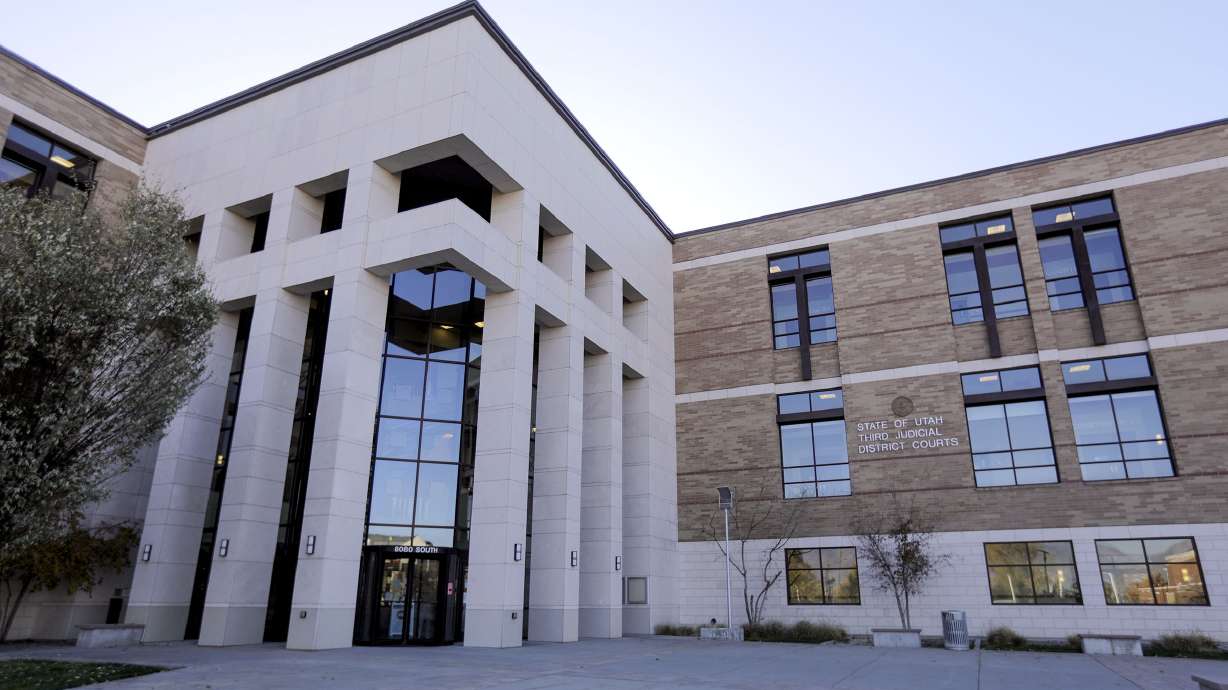Estimated read time: 3-4 minutes
This archived news story is available only for your personal, non-commercial use. Information in the story may be outdated or superseded by additional information. Reading or replaying the story in its archived form does not constitute a republication of the story.
WEST JORDAN — A judge on Thursday ordered a former Salt Lake City IT employee to stand trial on charges of using police information he obtained through his work to help keep a prostitution and human trafficking ring in operation.
Patrick Kevin Driscoll, 50, of Salt Lake City, was bound over to stand trial on charges of aggravated human trafficking, a first-degree felony; engaging in a pattern of unlawful activity and three counts of obstruction of justice, second-degree felonies; computer crimes and exploitation of prostitution, third-degree felonies; and aiding prostitution, a class A misdemeanor.
Third District Judge Chelsea Koch ruled against binding him over on one second-degree felony count of computer crimes, which claimed that Driscoll obtained information he did not have access to. Koch cited in her reasoning that a document from the city consistently said that there were no breaches found, and she said that if they did not find security breaches then Driscoll must have only accessed information he had authorization for.
She did say that evidence shows that he did have police files that he should not have held onto, which was reflected in the computer crimes charge that was bound over for trial. Specifically, Koch cited evidence — including admissions from Driscoll's testimony — that supports that he had a hard drive in his home with gang files and he had accessed files regarding prostitutes. And although he may have had authorized access to that information, he did not have authorization to copy or keep the information, the judge said.
The evidence was presented during a preliminary hearing in January, but the decision on whether enough evidence was presented to justify sending the case to a jury was delayed until Thursday after prosecutor Kaytlin Beckett asked that the judge take the time to view a police interview with Driscoll that was over six hours long.
Beckett expressed in her arguments on Thursday that it is very clear from that interview that Driscoll engaged in commercial sex, was aware that excessive force was in use, and engaged in commercial sex with women even after he had concerns that they had been trafficked. She quoted texts sent between Driscoll and others with information he could have obtained from his position with the city.
"It's very, very clear that his conduct is to keep this operation going and to obstruct law enforcement from being able to lock down what's occurring and prevent it from continuing to occur," Beckett said.
She cited text message strings between Driscoll and Michael Joe Ricks, who is facing trial for related charges, where Driscoll talked about money or "credit" that she said Driscoll received for information that he gave to Ricks. She claimed he provided information about ongoing police operations and undercover officers.
Driscoll's attorney, Greg Ferbrache, argued that there is no evidence that the information Driscoll sent to Ricks was accurate and said that he could have been making up information he sent in order to have sex with the women.
He claimed that there was no evidence that Driscoll knew of an active investigation or that he was helping the prostitution ring, only that he was engaging in sex.
"I'm at a loss where the evidence exists to have my client charged with such serious offenses," Ferbrache said.
Driscoll's first pretrial conference will be held on April 26.









